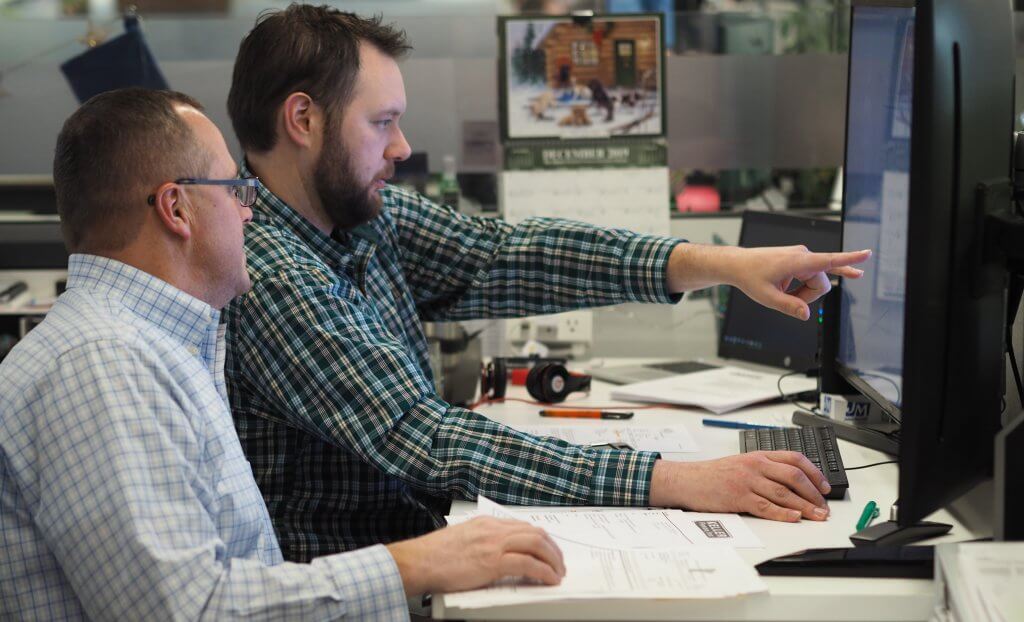The preconstruction stage of construction projects is built on cooperation, openness, and communication. It’s where you develop relationships founded on trust and formulate core goals. However, it’s also the stage that has the highest risk of falling.
By adhering to a set of tried-and-true practices and arming yourself with the necessary tools, you can prevent misunderstandings and ensure seamless project completion.
If you’re looking to improve your preconstruction process, check out platforms like https://www.alicetechnologies.com/product/preconstruction, which allow you to plan more efficiently. You can explore multiple scenarios for building based on project objectives and identify the best path forward.
Without further ado, here are some tips for building a successful preconstruction team.
1. Set Team Objectives

Source: greinerconstruction.com
The formation of a team and the establishment of common project goals are crucial. This may be done informally through a facilitated partnering session or formally through a preconstruction meeting.
At this kick-off meeting, all project stakeholders should be present. When everyone on a team is in agreement about the project’s aims and objectives, the team works much more effectively. This meeting also helps the players get to know one another and adopt a win-win team mentality.
The team should identify and decide on shared team and project goals collectively so that they have a purpose, a focus, and a direction. Goals must be quantifiable and measurable by time, feasible, and relevant. Mutual objectives may develop through the identification of stakeholders’ individual aims for the project.
During this period, sufficient team communication is vital.
2. Decide on Responsibilities and Duties

Source: freepik.com
Understanding one’s own or the team’s obligations and responsibilities is critical for every team member. By ensuring that everyone on the team is aware of their responsibilities, difficulties down the line can be avoided.
Members of the team must be aware of their legal obligations, not just for their own safety but also to prevent needless misunderstandings and expenses.
Team members should be made to explain to the other members their roles, responsibilities, and levels of authority early on in the team-building process. Through this activity, other team members can learn firsthand about the people they should collaborate with to address a specific problem.
3. Create Mutual Respect and Trust

Source: mindtools.com
The varied skills that each stakeholder brings to the table are only capitalized upon when there’s mutual respect and trust.
When people from diverse professions collaborate on a team, they frequently look at and approach problems from different angles. Distrust about one another’s capabilities makes teamwork impossible.
By establishing connections founded on respect and emphasizing each team member’s strengths and contributions, a better understanding and way forward can be achieved. Understanding leads to trust, and trust is the foundation for any successful enterprise.
Gaining an understanding of one another’s roles is crucial for team synergy.
4. Decide on Risk Distribution
After risks are identified, assessed, and prioritized early on in the project, they need to be properly assigned to the people best suited to manage them.
The team should get together to specifically address and plan for project risks. Risk management should see a comprehensive plan created to reduce each risk and allocate responsibility. Establish who should be looking out for what, and what the checklist should include.
5. Ensure Proper Group Communication

Source: marketing91.com
Inadequate communication among team members can result in excessive stress and tension, which affects morale and productivity and can result in a loss of time and money. By encouraging open and direct communication among team members, you can overcome communication breakdowns.
Relevance and responsiveness are the two essential components of successful project communications. Relevant communication means focused, succinct, and task-oriented communication. Meanwhile, responsive communication means active listening, expanding on other people’s ideas and perspectives, and being willing to elicit information from others.
The use of established communication techniques and prompt responses is vital. Putting off necessary team member contact can worsen problems and cause the team to perform poorly.
Communication Obstacles can be broken down by understanding them and communicating your ideas. Instead of arguing with other people’s ideas, proactive listening reaps better results.
6. Make Sure Team Meetings Are Productive

Source: freepik.com
Weekly team meetings can be useful for going over project-related difficulties. For the meeting to be successful and productive, all parties involved must be present, and it must be well-organized.
A chosen facilitator should be present to keep the meeting on schedule, foster open dialogue so that all participants are heard, and document decisions made throughout the meeting.
Prior to meetings, the agenda should be distributed, and minutes with assigned action items should be distributed as soon as possible after each meeting. A proper recording will allow everyone to read the same interpretation of what was said in the meeting, preventing misunderstandings and saving time for the project.
A Well-Organized Team Means a Successful Project
Building an efficient preconstruction team bodes well for the project’s success. Make sure to use the tips above to lay a strong foundation for your project.



